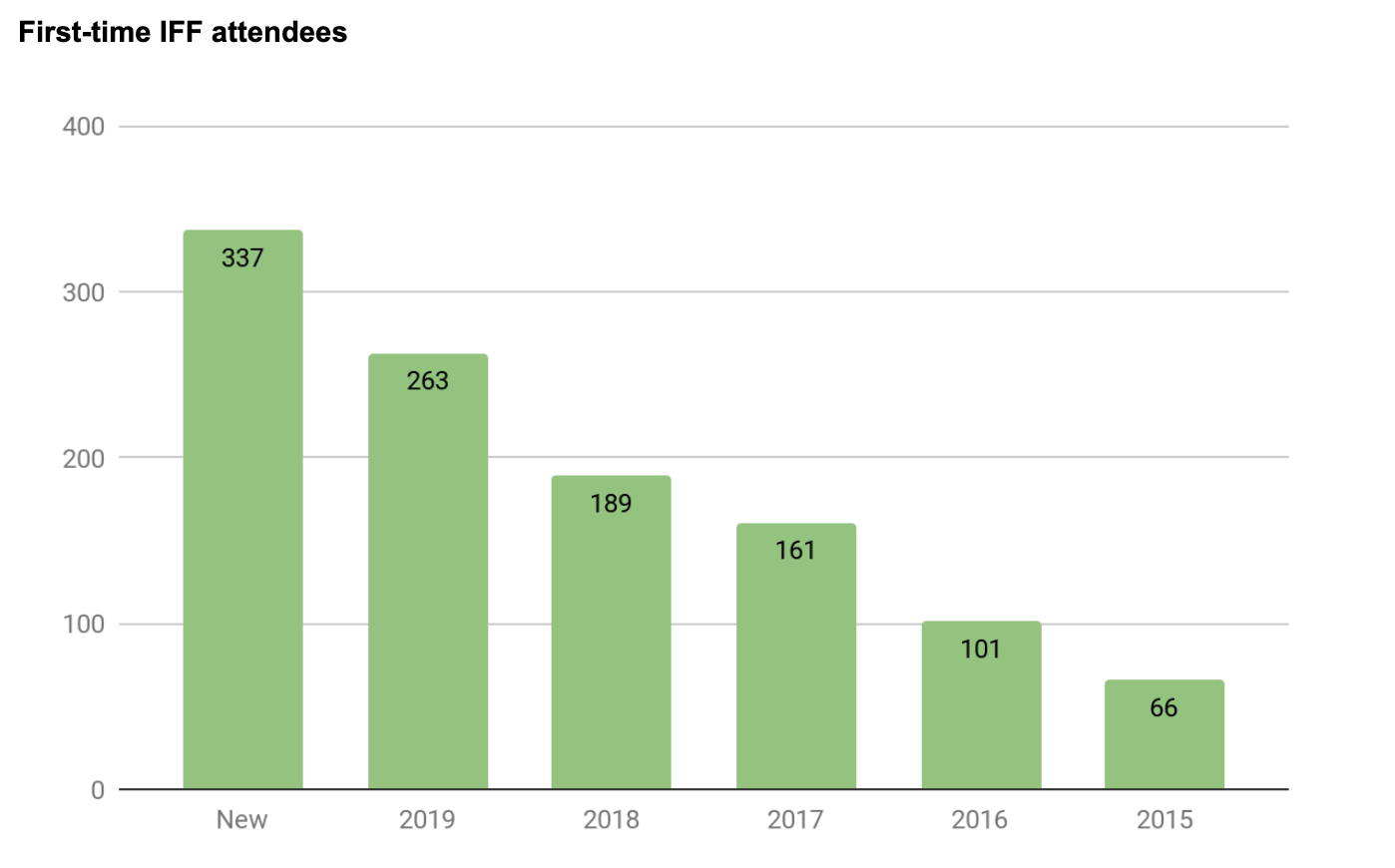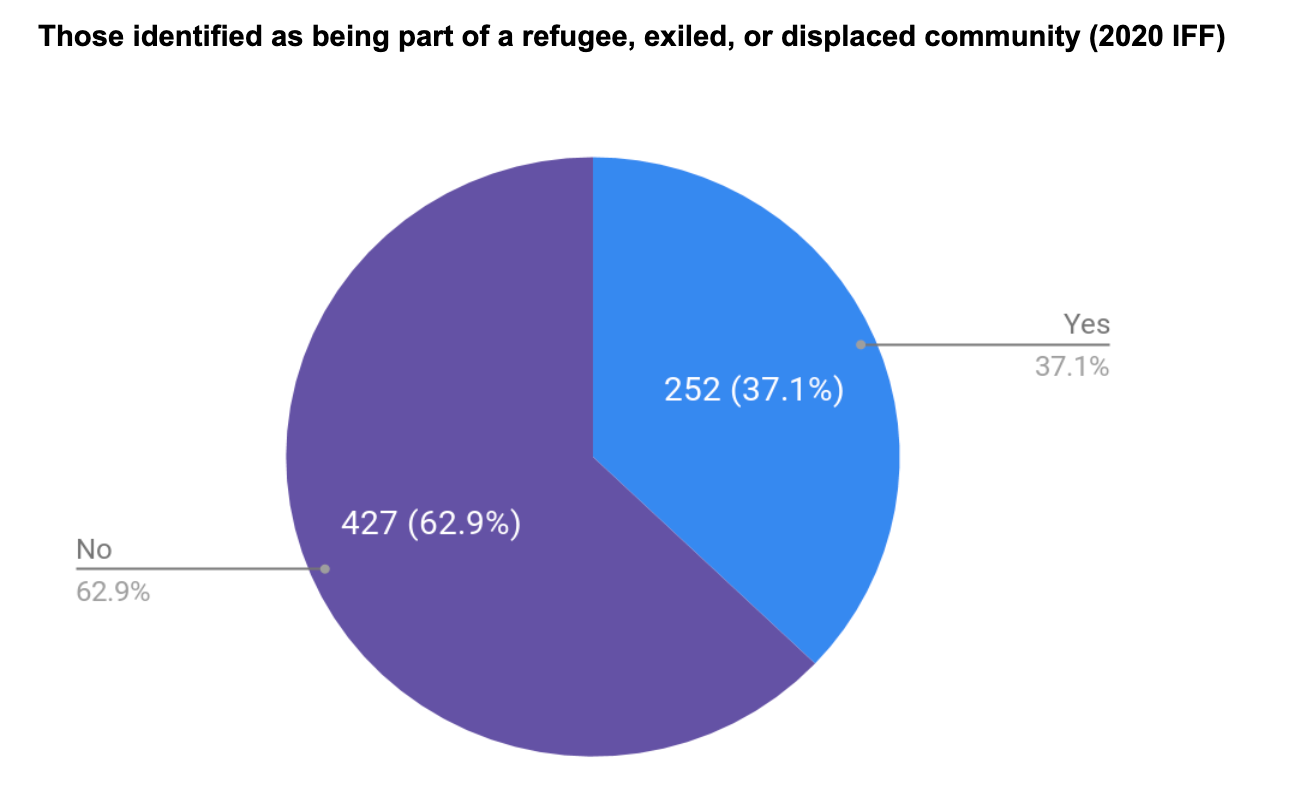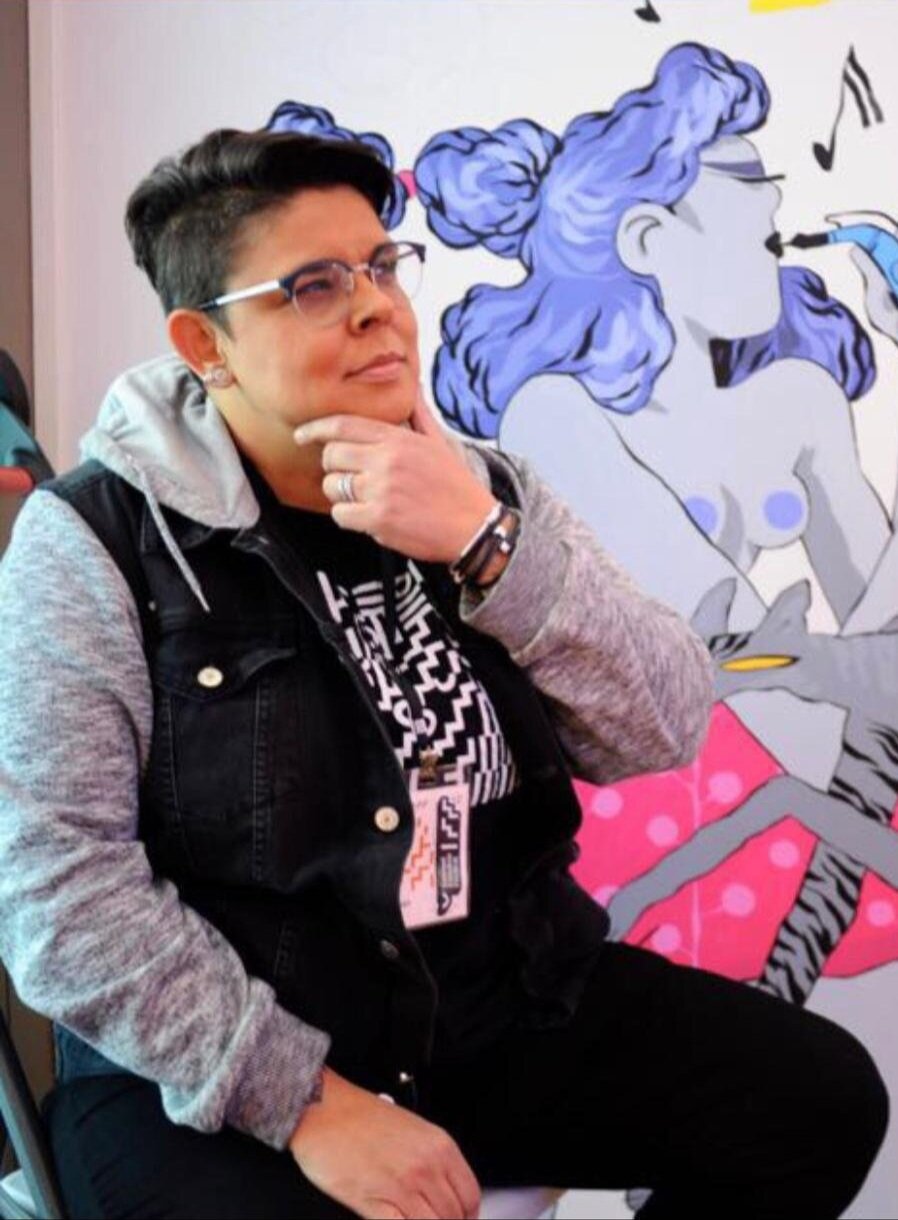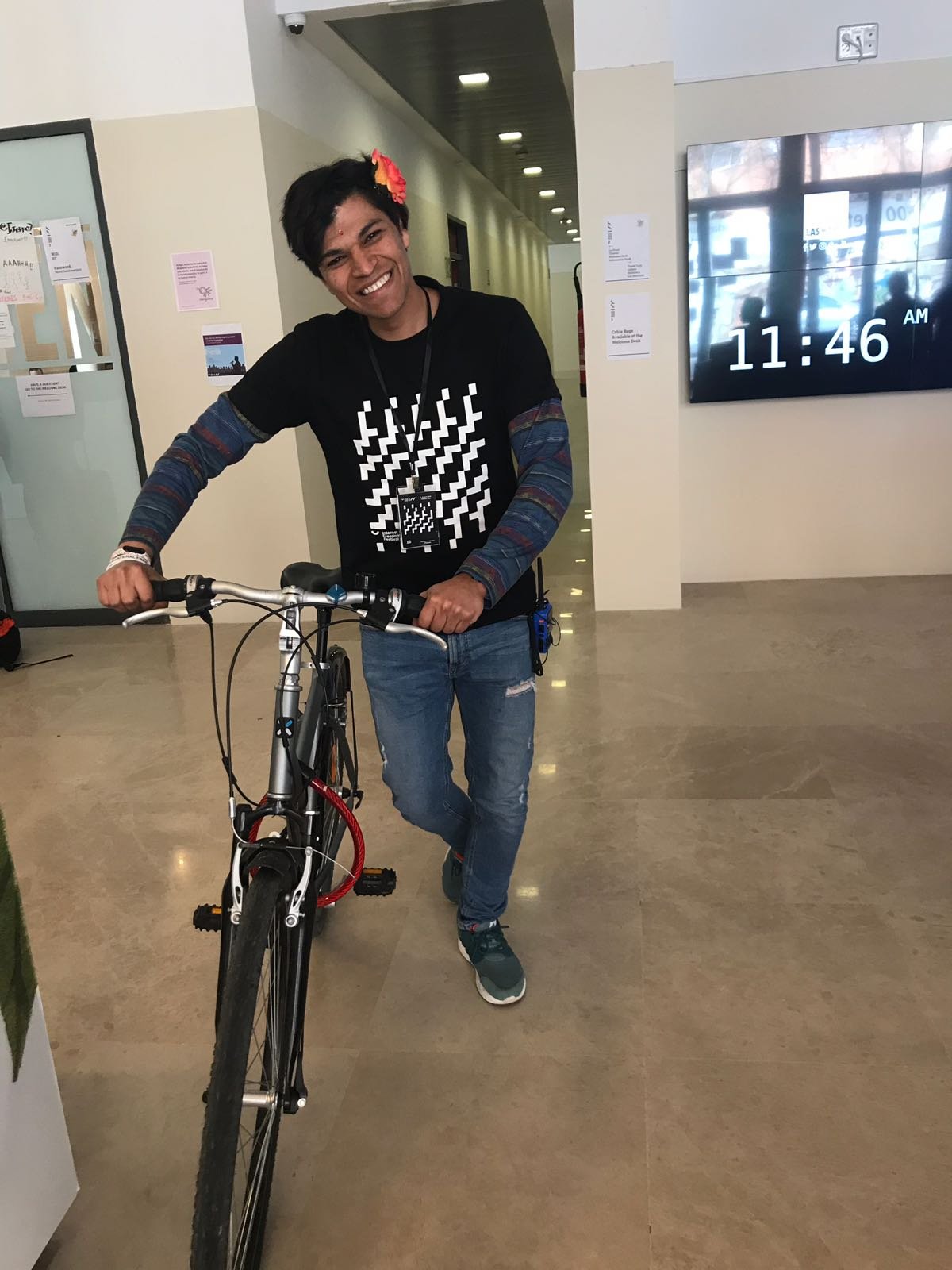Is the IFF Going to Happen? (Update)d
Apologies in advance for the length of this blog post, but this is a complicated question to answer, and we have a lot to say.
Folks have expressed the sadness of the lack of in-person events, including the IFF.
We titled this blog post with a question, “Is the IFF going to happen” because this is the question we have repeatedly been asked since Covid-19 began. This is because the Internet Freedom Festival is less of an event and more where people go to connect, build solidarity, and recharge their morale by being around folks that reflect their values, interests, and commitment - and get their healthy dose of glitter.
We think the question(s) should be:
What is Team CommUNITY doing to ensure that community spaces and events continue happening post Covid-19, considering how dramatically it's affecting our communities, work, and neighborhoods? AND
What are we doing to continue growing the community by onboarding and empowering new voices?
A history of solidarity and collective action
For those of us who have been in the digital rights community for some time, we have a bittersweet view of the community because of the complicated history it has had, and the collective path we took to make the community stronger and healthier. However, we sometimes forget that many of our shared challenges can be found in all corners of the world - sexism, colonialism, racism, and a lack of safety and security, are injustices that many others face.
However, this community has demonstrated unique self-awareness, strength, and courage to look at itself and ask, “This is an injustice. How do we change this? Our track record is pretty impressive. In a very short time, we have brought attention to the issues that we want to change. And we’ve come together to tackle them as a community, often doing this within a diverse, global context; negotiating wide cultural differences, multiple language barriers, and broad diversity in backgrounds and experiences.
The numbers: where do we come from?
Our team has a unique holistic view of these changes because, ultimately, we set our agenda as a community. This means our focus and priorities are set collectively.
Most recently, while working on a report for a grant, we stumbled upon historical data that reflects the demographics of our members. It also reflects the evolution of the digital rights community because IFF has played as an important community center. These numbers clearly show that the digital rights community has transformed itself in a very short time. For example:
Increased safety and security
In 2016 many of us were outraged by the lack of safety and security in our events, including especially the different types of harassment we confronted in our spaces. At IFF, we invested in developing an effective code of conduct process, verifying every single person that came through our doors, and addressing the needs of marginalized folks. This work, coupled with the incredible support we got from the digital rights community, meant we were able to advocate for safer spaces in the digital rights field. Thanks to the community’s work, there were policy changes in many of the Internet Freedom funders, who began requiring that all funded events to have a code of conduct or similar tools and/or considerations put in place.
Greater diversity
In 2017, we identified that bringing new voices was essential to our future, and by 2020 close to half of IFF participants were new people, attending for the first time.
More space for people who are marginalized
In 2016 we wanted more voices from affected communities leading important conversations. In 2020, just 4 years later, 65% of IFF participants identified as coming from the Global South, 37% from part of a refugee, exiled, or displaced community. In our recent community health report, 33.6% of participants said they belong to the LGBTQ+ community; and 55.4% identified as being part of marginalized community.
MOST IMPORTANTLY, these numbers reflect all the work the digital rights community did collectively to get us to where we are now in regards to community health.
It also shows a community that is incredibly smart (literally, you all are geniuses - more than 49% of you have a Master’s degree or higher according to our recent community health report data), diverse, and young. These numbers show that the community is resilient and has the fortitude, intelligence and passion to continuously move the compass in the right direction, bring in fresh faces, and handle any challenge in its path.
We still have a lot of work ahead of us, but it's important to take a moment and really celebrate the accomplishments mentioned above. It took a lot of collective effort to get where we are.
Check out more demographics data from our recent Community Health Report.
The new challenges
Our Head of Security, Trinh Nguyen, has been tracking Covid-19 impact since January 2020. As many of you may know, thanks to her work, IFF was one of the first global events of its size to be canceled. We did this because we love you all too much, and will never do anything consciously to put you in danger.
While we want more than anything to bring the IFF back to life, Covid-19 continues to bring havoc in our world. Our research shows that there are still many, ongoing challenges we need to adapt to. Some of the main ones are:
Vaccine inequality
There are still huge numbers of folks throughout the world that don't have access to vaccines or boosters. Not surprisingly, this is impacting Global South and marginalized communities the most (which make up 65% of IFF participants). To-date, only 56% of the world's population has received at least one vaccine dose. And in low-income countries, only 7.1% have received at least one dose. What we are witnessing is a vaccine apartheid, which is already being contested by a coalition of over 130 civil society organizations, called Our World is Not For Sale, who state that two years into the pandemic there are no signs that the gaps are closing.Covid-19 variants and risks to health
The virus is still mutating, with the rise of new variants on the horizon. From our perspective, we are still very much in the thick of the pandemic. We do not know enough about how dangerous (or not) these variants will be. However, it's our duty to avoid situations that could potentially kill people or put their health at-risk.Visa processes and border closures
As governments grapple with new variants, we know that border closures, lockdowns, and travel restrictions remain a reality for an already difficult travel process. Pre-pandemic, the visa process was fraught with burdensome bureaucracy and often exclusionary policies. Now, the process is even more daunting, as embassies and consulates are often inaccessible even for non-essential travel. The impact of travel restrictions and border closures, regardless of promptness, could mean travelers become stranded—a burden that organizers would never want to impose upon festival participants.Airline industry is unstable
From a decrease in available pilots, to changes in flight paths, to cancellations and fewer flights overall, the airline industry has a way to go before it regains stability and is 100% reliant.Costs have risen dramatically
In many cases, events are twice as expensive as they were pre-Covid. There are additional costs for every vendor and services we often rely on—such as employing medical staff, buying and taking regular Covid-19 tests insurance for travel, and higher venue, rental, flight, and food costs.Increased digital, physical, and psychosocial threats
There are increased threats we need to account for to keep everyone safe. These include increased digital attacks, surveillance, censorship and punitive measures in every region, to an increase in risky behavior by individuals, to a sharp decrease in mental health. In addition, the pandemic continues to exert a continuous socio-economic toll on various communities.
Between the funding challenges in the broader field, to increases in inequality because of Covid-19, staying true to this principle is growing more complicated. We do not want to host a large event if it is going to lack the diversity it needs, and will only bring together folks that have the privilege and resources to attend.
Having said that, it is not our intention to shame any person or group that is currently organizing an in-person event - they are crucial to community building. However, because of its size and scope, and since equity is, and will always remain, central to the IFF, at this moment we need to pause until a window of opportunity opens.
Wait, what does this mean?
It's going to be a while before we can gather together physically in huge numbers. We suspect that, as of now, the IFF will not be possible until 2023 the earliest, and 2024 more realistically. This uncertainty is because what happens will be heavily dependent on how Covid-19 continues to evolve, which we continue to track closely, and frankly our ability to fundraise properly to cover new costs - safe events are much more expensive in the “after times.” We will be experimenting with smaller events in the run up to a larger global gathering because we understand the need for in-person gatherings and need to build our wisdom of running events in this new context in a sustainable, safe way.
Literal picture of some community members when they find out it may be a while before we gather again.
We see opportunity
We know this feels like a blow to our community, considering that so many of us loved our annual gathering point. However, we see this as an opportunity to be creative and invent new ways of being, doing, and building bridges.
For example, the amount of travel we did collectively as a community cannot be good for the environment. The speed and expectations of when things were going to get done, was unhealthy - we cannot sustain the frantic pace we all kept in the “before times” even if we wanted to. Covid-19 is forcing us to think about these issues, and it requires us to go back to the drawing board. While this is hard, it is also a historic opportunity to re-envision and re-design.
It may feel scary, but we believe 100% in our community. Thinking back to all the community health issues we tackled collectively in the past, confronting these new challenges isn’t any different. In fact, we wouldn’t be surprised if many of you pioneer the way forward, given the level of talent, intelligence, and passion we see.
On our team, we are excited about the future, and the ability to create. We know that the next iteration of the IFF will be much more magical and glittery than anything any of us have seen to date - and we are excited to build it with you!
We will continue building community and supporting your wellbeing
Despite the pause on the Internet Freedom Festival, most of our community building and support took place in the months leading up to the event. We will continue doing this work, creating sustainable spaces and services that bring value to digital rights defenders.
To start, we will be strengthening our existing online spaces, such as the Digital Rights Job Board, Digital Rights Newsletter, Community Knowledge Share sessions (CKSs), Villages, Mattermost, and of course, chat-based gatherings, such as the weekly Glitter Meetup.
We are also exploring ways to compliment these existing services, such as creating asynchronous ways to communicate, share resources and knowledge, and onboard new community members.
Our inaugural Community Health Report, which we will be publishing on an annual basis, has provided us with a good snapshot of the wellbeing of digital rights networks throughout the world. Based on this report, we are developing a host of psychosocial services, with many more to come, such as one one-to-one therapy to educational tools, as part of our brand new Community Mental Health program. In addition, we are educating a diverse group of therapists from different backgrounds and with a range of languages, on how to better serve you.
We will continue providing consultation and support to community leaders, helping them navigate these new times, and sharing wisdom we acquire on how to improve structures and processes to enhance the wellbeing of themselves, their staff, and the communities they are serving. (More on this soon).
We have a favor to ask: send us your memories, needs & desires
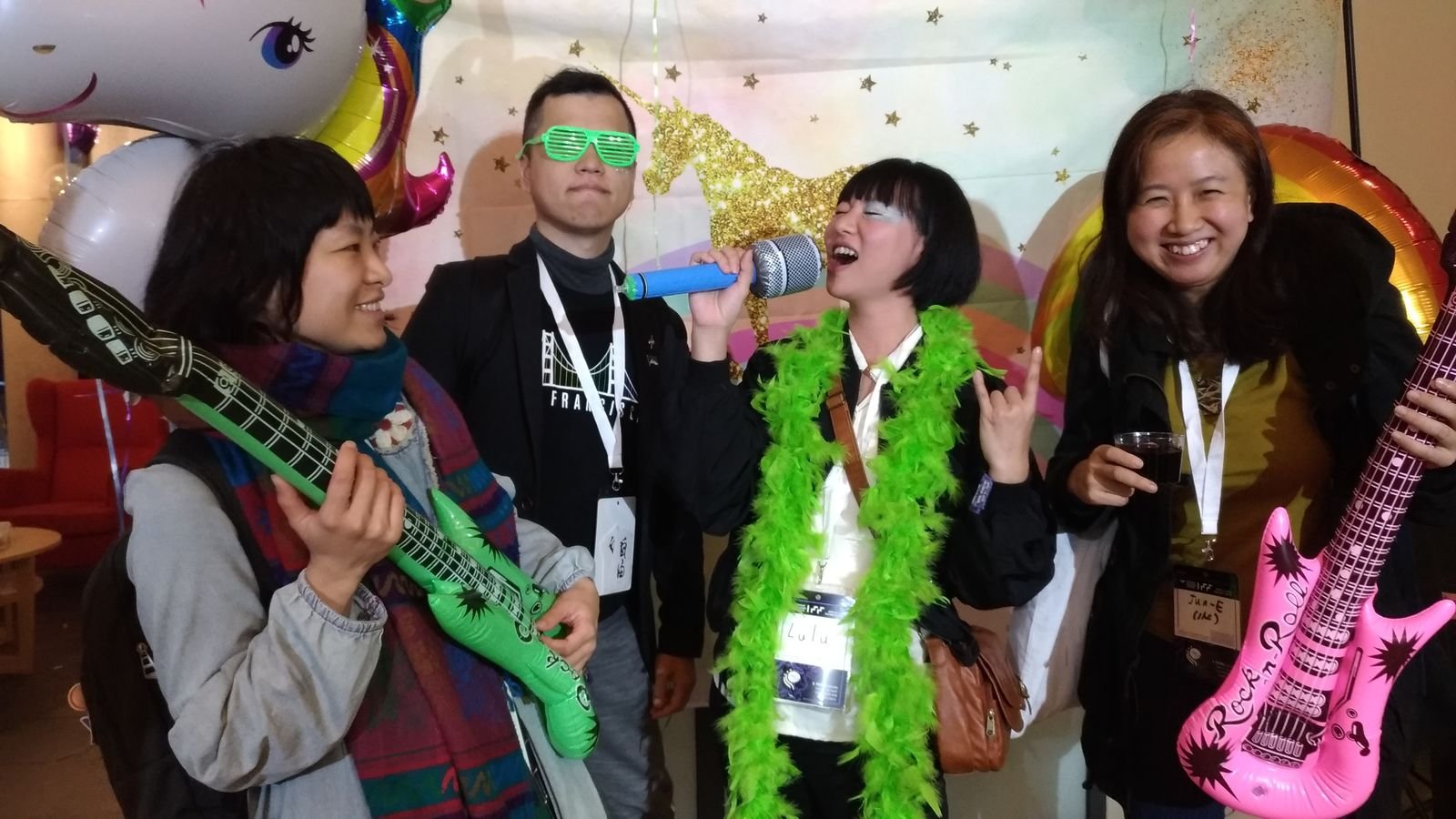












When we work together, amazing, beautiful things happen - even in the face of adversity. Things will not always be or feel this way. Think of this as a period of reflection, and time to gain our energies so when we do meet in person, we can do so with more glitter and love.
While we are all experiencing Zoom fatigue, it's important that we put effort in continuing to connect, no matter how hard it is. Resilience is community. We may be forced to create a community in contexts we don’t like - but it's needed more than ever.
As we are working towards the next iteration of the global in-person gathering, we want to ask you for a favor. Take a few minutes to remember the thing you most cherish about the IFF, a principle, activity, and/or emotion or feeling you experienced that you want to make sure we keep in the future. Your memories, needs or desires help us build a more brilliant, and exceptional global gathering - and we are excited to do this with you all. Please send them via email at team@digitalrights.community and indicate whether we can share this anonymously with others.
At the end of January we will be hosting a ceremony to close this chapter of the IFF and start a new chapter by remembering the essence we want to keep. We will send out dates as soon as they are squared away. We hope you attend, as we think it will be a powerful moment to mark the future direction!
// May this message reach you with love, and may you remember that you have a community that wants to support you. Our team is only an email away, and you can also find us on Mattermost. You can always schedule a virtual cup of tea or coffee with any of us. //



